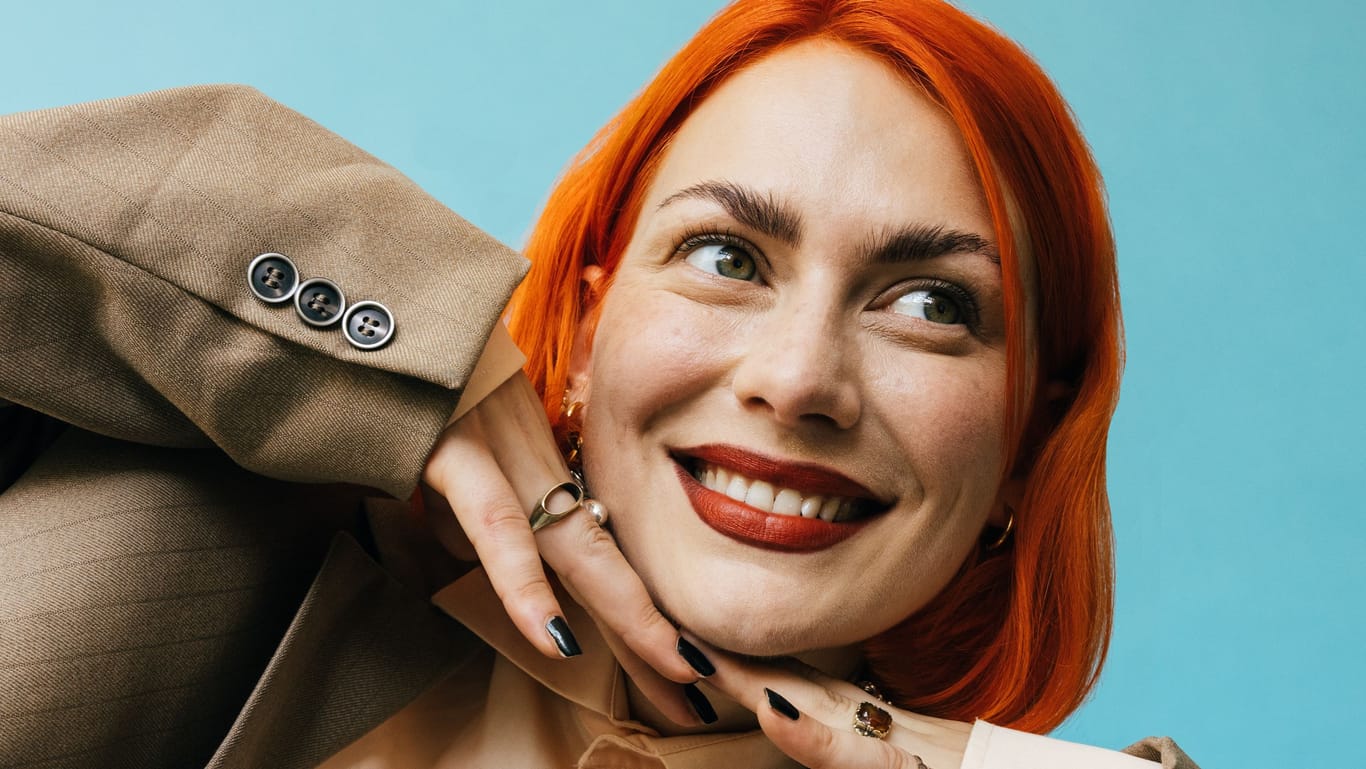
The singer Alli Neumann speaks emotionally about her relationship with her mother and sister, about Poland and about how she stole beer mats from the secret Bundestag bar.
Her neon orange hair bounces up and down as she walks up and down a few steps along a large Berlin street intersection. She’s wearing a hoodie, flared pants and chunky-soled sneakers. Everything in black. One hand is clutching a coffee-to-go cup. With her other hand she holds a smartphone in front of her face and speaks into it.
Alli Neumann comes to talk to t-online accompanied by her manager Misla Tesfamariam. “Alli loves FaceTime,” reveals the manager. The two seem familiar, like close friends. They joke with each other, laugh loudly and heartily.
As a child, Alina-Bianca “Alli” Neumann lived in Poland for a few years before moving to North Frisia, dropping out of school at 14 and going to Hamburg for her first record deal . Her first EP “Hohes Fever” was released in 2018, and in 2021 she dealt with the topics of sexism, identity and integrity in her album “Madonna Whore Complex”. She says that she loves music more than anything and that she can’t remember a time when she didn’t have to become a musician. “And then somehow it worked.”
During the interview, Alli Neumann repeatedly puts her hood up and down and is a little excited. When the singer talks about her sister and her mother, she becomes calmer and her eyes fill with tears. She has dedicated a song to both of them on her new album “Primetime”
Alli Neumann: It was particularly difficult in the last few days. When we talk about world pain, it helps me to do things where I see that change is possible. It breaks my heart to see homeless people wasting away alongside us, even though we live in a society where there is prosperity. It can be oppressive to realize this. It gives me hope to volunteer and see that I can do something about it together with other people. With my reach I can ensure the visibility of organizations and associations, for example Fridays for Future or the Human Rights Festival.
You wrote the song for your mother. What role does she play in your life?
Today she no longer makes me cocoa in the morning like she used to (laughs). Of course our relationship has changed. And it’s changing all the time because I’m working on myself and hoping to become even nicer. It becomes an increasingly friendly relationship. I FaceTime her every day. It gives me a lot to see her cute little face on my screen. Or when she puts her ear into the camera. I let my dog, who is currently with her, show me and remind her to water my flowers.
Your mother is Polish and you lived in Poland as a child. How do you view the country today?
It is bad when democracy, democratic-liberal values, queer rights and women’s rights are under attack. I’m currently in good spirits that this time it’s not the PiS but the PO that will come into government. This would take us another big step towards democracy and freedom.
Why are queer rights so important to you?
On the one hand, queer rights are important to me out of self-interest. I experienced what it means to live in a homophobic country. My cousin from Poland took her own life. She experienced several street attacks in Ireland in the two years before her death. She even had to go to the hospital once. That’s why I know that queer rights cannot be taken for granted. And I know how quickly the situation in Poland deteriorated. At least from the government’s point of view it was safer before.
